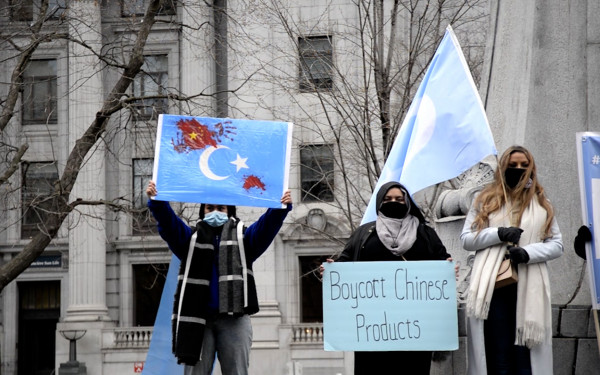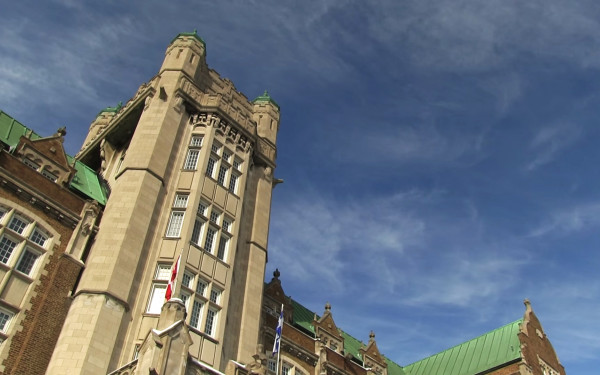Concordia Gives Accommodations for Bomb Scare
Senate Update: Questions About MIGS Go Unanswered as History Professors Seek Explanation
Concordia University will grant academic accommodations for students who request it, for classes that took place from March 1 to 3, when the bomb threats targeting Muslim students were made.
The accommodations will extend to both the downtown and Loyola campuses and will include help for those who were unable to do their exams, assignments, and participate in class during those days.
“There weren’t any explosives around, but that does not stop or mitigate the very real trauma and anxiety and mental health of the community,” said Concordia Student Union General Coordinator, Lucinda Marshall-Kiparissis, after the the motion passed at a University Senate meeting on March 16.
“Having that acknowledgement [from the university] was really important for us.”
The deadline to apply for accommodations is March 31. Concordia President Alan Shepard said that the university would do its best to communicate this information to its faculty.
Should any professor refuse to grant accommodations, Shepard said that students should contact the chair of their department or dean of the faculty, and that there would be consequences, but it is currently unclear to what those consequences would be.
“It is a big university and I understand that makes it difficult to guarantee that total dissemination,” Marshall-Kiparissis said. “But if it’s not reaching the students who don’t know that this is something to do and are still wallowing in that kind of anxiety about missed work, or about having to perform under intense stress and trauma then that doesn’t really help.”
She added that the CSU would be doing all they can to get this information about the academic accommodations out there to its students.
The Future of MIGs Still Uncertain
Dr. Max Bergholz and Dr. Ted McCormick—both professors of the History Department—wanted to use Senate to question and discuss the Montreal Institute of Genocide and Human Rights Studies, and the announcement of Kyle Matthews as its new executive director.
They did not leave satisfied.
“What we’re looking for is an explanation as to how very serious violations of this policy were committed by some of the most important people who run this university,” said Bergholz a er the meeting ended. “Calling it a mistake does not provide any kind of explanation to that.”
The announcement of Matthews, a non- faculty member, appointed as director of MIGS on October 25, 2016, was made by Justin Powlowski, the Vice-President of Research and Graduate Studies, current Provost Graham Carr, and the Dean of Arts and Sciences, André Roy.
There was some confusion as the appointment was in violation of the University and Research Units and Infrastructure Platforms, which states that all directors of a Concordia institution must be a faculty member.
Roy said that he did not want to debate this at Senate. Having apologized and admitted that it was a mistake, he stressed that he wants to move on from the issue.
Bergholz thought that Senate was the best place to discuss the issue as Powlowski gave a presentation of the policy that was violated earlier in the same meeting.
The discussion was cut early because the question period was bound by the time indi- cated on the agenda, which was 15 minutes.
Bergholz asked that if you can’t debate policies about research units at Senate, then who holds the university administration accountable when they commit violations?
“The answer I see today is probably no one,” he said.
To bring this issue back up, Bergholz said that faculty on Senate would need to advocate or organize an independent investigation of the procedural violations.

_600_832_s.png)



